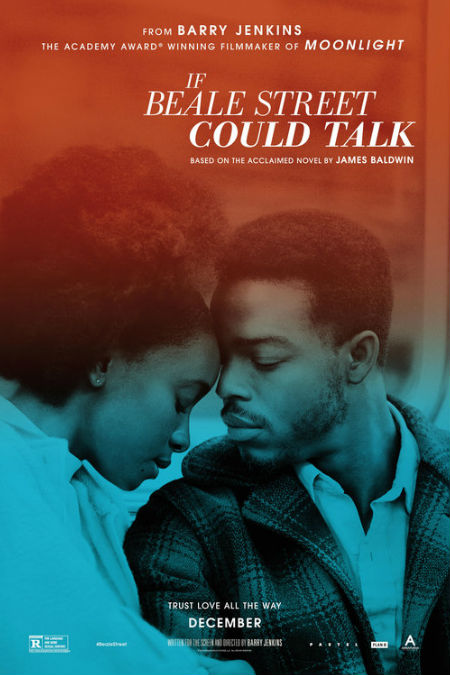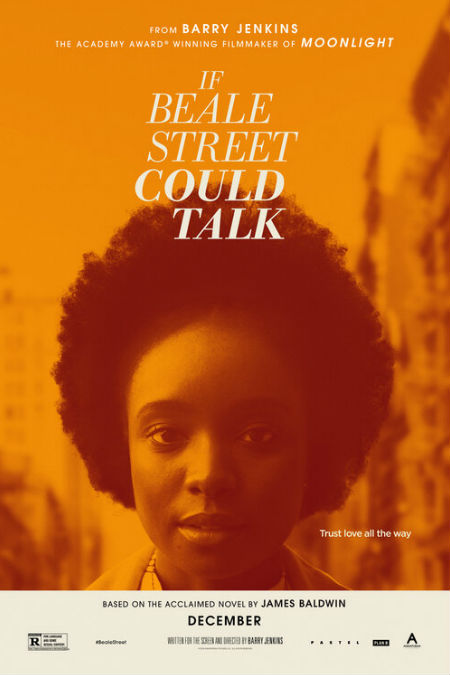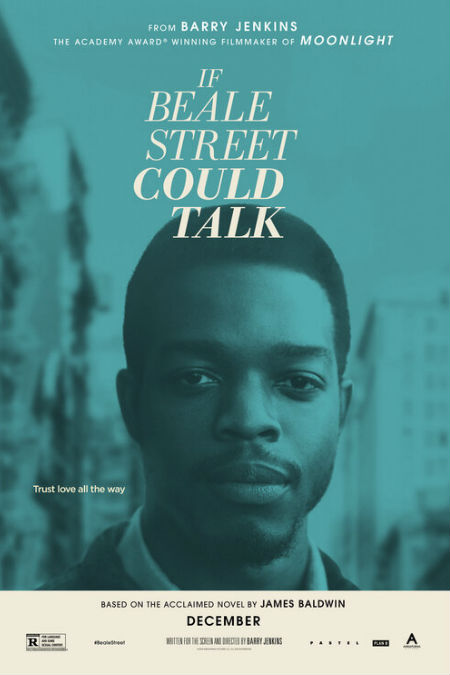
The idea that a particular geographic place can carry great cultural importance or emotional weight for a specific group of people would make sense for most of us.
After all, we all find ourselves drawn, singularly or as a group, to places that speak to us or shape us in ways obvious, and also more oblique, and which come to define us in one way or another.
But as author James Baldwin, upon whose book of the same name, If Beale Street Could Talk, director Barry Jenkins’ follow-up to the Academy Award-winning Moonlight, is based, observes, with characteristic lyricism and insightfulness, this is especially the case for black people in America for whom locale carries a real resonance:
“Every black person born in America was born on Beale Street, born in the black neighborhood of some American city, whether in Jackson, Mississippi, or in Harlem, New York. Beale Street is our legacy.”
It is this quote, along with the explanation of Beale Street as the thoroughfare in New Orleans on which Baldwin’s father, Louis Armstrong and Jazz were birthed, that begins this luminously beautiful but painfully-real film, a piece of quotable prologue that establishes very quickly how much of an impact where you live has on who are and the kind of life you lead, particularly if you’re a black person in a country that Baldwin saw as so inimical to his and other black peoples’ interests that he emigrated in the late 1940s at the age of 24 to France.
This sharp observance of place as a formulational building block in the lives of people like protagonists Clemetine “Tish” Rivers (KiKi Layne) and Alonzo “Fonny” Hunt (Stephan James) comes to powerfully to the fore, in ways both profoundly good and hauntingly not so with the childhood sweethearts encountering innumerable roadblocks to the fulfilment of the love they share deeply and completely, a relatively-recent addition to the friendship that has sustained them all their lives.

(image courtesy IMP Awards)
The obstacles are formidable indeed with Fonny jailed on the say-so of a policeman and a justice system that harasses, mistreats and imprisons the very people it is sworn to protect, and Tish and her closeknit family – mother Sharon (Regina King), father Joseph (Colman Domingo) and sister Ernestine (Teyonah Parris) – forced to take what little resources they have to try and defend a man who is family to them.
It’s a rough start for a nascent romantic pairing, one that has long roots true but which still is just starting out when the cold, dead hand of racially-charged justice strikes, with a loft apartment secured from landlord Levy (Dave Franco), the only person who will rent to a black person that they have come across, the unwavering support of the Rivers family – by way of contrast, Fonny’s family, led by his uncompromisingly-cruel holy roller mother (Aunjanue Ellis) provides fierce opposition save for weakly-ineffectual father Frank (Michael Bleach) – and most importantly, a deep and reverberating love that flows through the film from start to end.
This is no Hallmark holiday love either.
Forged in a world that seems to be grossly unfairly weighted against them, the hopelessness of loss of opportunity and progression that bedevilled, and sadly, still bedevils, black people, very much a part of the narrative, their love can’t simply be a thing of whispered “I love you’s”, stolen moments and tender sex, though it is undeniably all those things.
It must stand strong and unassailable against multiple enemies, many of them taking physical form, or seeming to, and it must keep them going when it seems there is no point going on.
This is love that makes sense in a muscular way, that isn’t wholly the product of all the things that come brightly to the fore on Valentines Day – it makes sense that it released on this day in Australia given the way love is such a strong part of the storyline in the kind of way that shifts mountains, though, sadly, not all of them – but which looks reality straight in the eye and vows to stay strong and resolute even when everything calls upon it to fold and yield.
In one scene, when a heavily-pregnant Tish is both greatly physically uncomfortable and heart sick, separated by glass and the criminal justice system from the man she loves, her mother, who is played with immeasurable force and yet tenderness by Regina King at the top of her game, impels her with compassionate urgency to stay the course of love, because it began her daughter’s journey and it will see her through to the end.
In a lesser film, this might come across as somewhat hackneyed, trite or melodramatic, but in If Beale Street Could Talk, it carries profound resonance, a verbally-motivating reflection of the love we have seen on display time and again from Tish and Fonny.

(image courtesy IMP Awards)
It is this love, this real, muscular, true, honest and heavyweight love that is capable of such caring and soft caresses, that infuses this film that is so beautifully filmed and so narratively-rich that it feels like a luminously-lovely dream at times.
For all its depiction of justice denied, a society full of hate and families at loggerheads – the scene where Tish tells Fonny’s family, with her own present, that she is pregnant, is immensely-moving, a mix of hope and condemnation, words uplifting and barbed that crackles with the very best and worst of humanity – If Beale Street Could Talk is a characteristic Jenkins-ian love story to time and place, to people, to family and to the power of love to sustain us when little else will.
For all its waking nightmare elements, its grim realities and palpably-awful truths, the film is full to the brim with love, with the director taking great care, through inventive visual and robustly dialogue-driven cues to remind us that this is the story of how love can shape what might appear to be the unshapeable.
Again, this is not some namby-pamby love that exists in paper-based rhyming couplets or dew-eyed glances across crowded rooms; this is love in the trenches, borne of lifelong friendship and truth that makes sense not just in the quiet, intimate moments but when the world is screaming at the door to be let in, a pack of vengeful hounds at its back.
That’s why Tish’s mother is so quietly-fervent in her injunction to her daughter to stay the course because of love; in their world, and indeed anyone’s but most potently theirs at that point, love is the deciding factor between holding in there and giving up, between making something good out of something most assuredly not, and triumphing, even if only in part, when the only possible outcomes seems to be soul-destroying defeat.
This central truth is what invests If Beale Street Could Talk with so much movingly-arresting potency – there is a great deal about which to despair, and the film pulls absolutely no punches in that regard, but there is also much to sustain people, especially if they finish in love just as they began in it, holding the course when everything else in life declares it a fool’s errand.